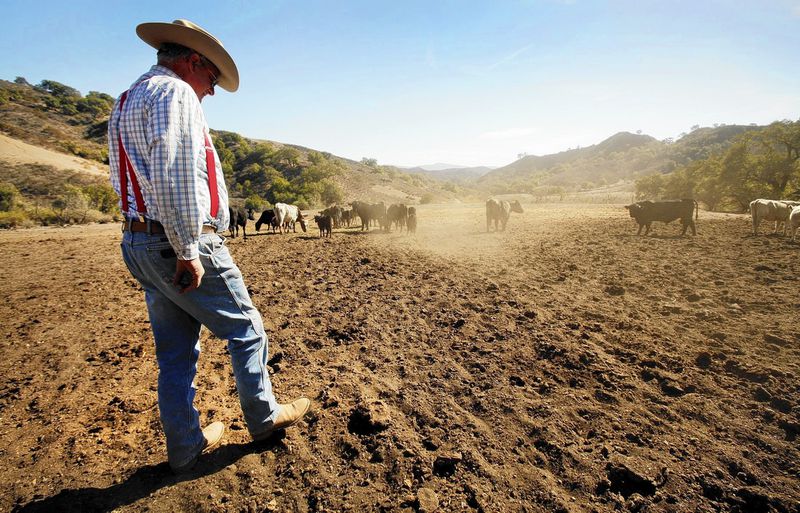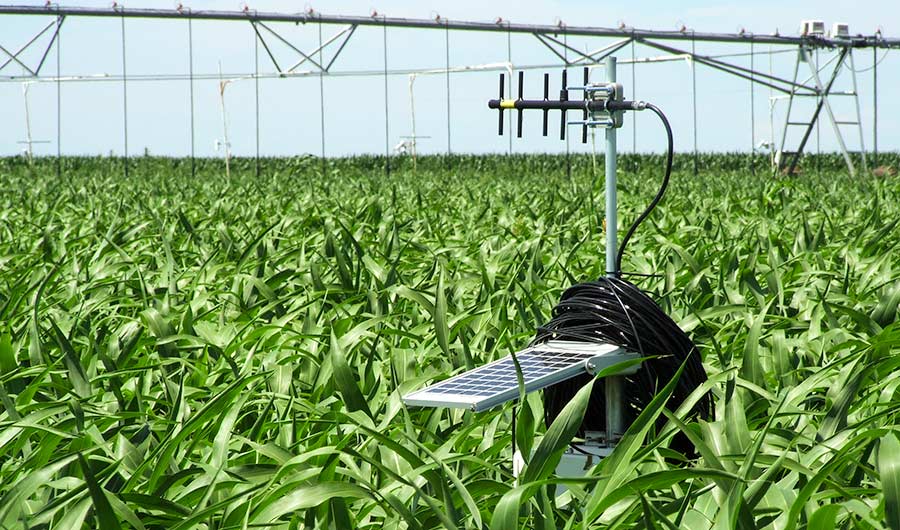
This is the first in a two-part article. The second installment runs Thursday.
As the 2020 presidential primary heats up, Democrats have been in a full-court press to connect with potential voters, and one constituency that has attracted serious attention lately is rural America.
Among the many reasons for Hillary Clinton’s loss in 2016 was her bad performance in small towns across the upper Midwest, compared with Obama in 2008 and 2012. This time around, Democrats seem to understand their weakness and have been reaching out to rural voters. That the Iowa caucus is the first test of the primary campaign has only increased the interest.
False choice
There is an ongoing debate in Democratic circles and the media about how the Democrats should wage their 2020 campaigns: mobilize the base or reach out to disaffected voters who voted for Obama but went for Donald Trump in 2016. In the end, this is a false choice based on simplistic categories.
No doubt, in 2020 the Democratic candidate could win a narrow Electoral College victory by running up the score in urban and suburban areas or by attracting some of the Obama-Trump voters. But to win House, Senate and state races – and ultimately the political power to advance critically important legislation such as the Green New Deal – a more comprehensive strategy is needed.
Given rural states’ dominance in Congress, Democrats need to increase their competitiveness across the Midwest and Great Plains while also working hard to mobilize new voters and those Obama voters who stayed home in 2016.
From the point of view of urban- and suburban-oriented Democratic officials and strategists, rural America is often seen as a conservative bastion that remains simply unreachable. But farmers and other people living outside of cities and suburban places are hardly monolithic, whether by class, ethnic identity, or politics. Moreover, progressives in the countryside are organizing and starting to contest elections in many of those places.
Rural America is also of critical importance for climate change. Agriculture, particularly corporate farming, produces a vast amount of greenhouse gases. Standard farming practices such as tilling expose the soil to the atmosphere, resulting in the breakdown of large amounts of organic carbon into carbon dioxide that escapes into the atmosphere.
In addition, the use of large quantities of chemical pesticides and fertilizers as well as animal waste from hog, beef and chicken farms pollutes local areas, contaminates the water supply, and releases methane into the atmosphere. Given the amount of greenhouse gases and pollution caused by extractive farming practices, transforming the agricultural economy is a critical component of any serious attempt to address climate change as stated by the Green New Deal resolution.
It is also important to understand that the market fundamentalism of the Republican Party has hurt people in rural areas – whether it is opposition to the Affordable Care Act, declining investments in schools, hospitals and other public services, or support for large agribusinesses which undermine family farmers and their communities.
Of course, Democrats are hardly innocent here, often going along with legislation designed to benefit Big Ag and cutting taxes on the rich and fossil fuel corporations. The larger point, however, is that the rural crisis cries out for progressive policies and therefore opens the door to connecting with significant numbers of rural voters.
The crisis of the rural economy
The decline of the rural economy in the U.S. has been a decades-long process. In part, it's due to the loss of industry and manufacturing in small towns, but the larger problem is the ongoing crisis of small, family farms: a crisis that is largely due to the emergence of a highly extractive, corporate farming economy that has become increasingly powerful, displacing and absorbing the smaller farms that have always been the foundation for rural communities.
As Big Ag has come to dominate the entire supply chain, from inputs such as seeds and fertilizers to products like soy, corn and meat, small farmers have increasingly lost bargaining power, which severely squeezes profit margins and drives many into bankruptcy.
As a result, small towns have become depressed areas. Many people, especially young people with few prospects, have left for the cities. Rural America as a whole is losing population, while increasing numbers of those who remain fall victim to substance addiction and suicide.
In sum, people in rural areas are suffering from the same economic dynamics that affect workers in industrial areas and cities: the economy favors powerful corporations, leaving everyone else to scramble for scraps. Just as workers have realized only marginal wage gains over the past 30 years despite dramatic productivity increases, farmers have been earning less and less from the wealth they create.
With the decline of small- and medium-sized farms and the rise of the behemoths, inequality in wealth and assets has plagued small towns and farming communities just as it has plagued the rest of the economy. And environmental degradation has accompanied these problems.
The use of large quantities of fertilizers and pesticides has depleted soil fertility, killing critical soil organisms as well as pollinators and other helpful insects. These chemicals also get into the water supply, polluting lakes and causing large dead zones in the Gulf of Mexico as a result of runoff that flows, first, into the Mississippi River and then to the ocean. As land becomes less fertile, large corporate farms apply more chemical inputs in an attempt to maintain yields, exacerbating environmental problems and soil degradation.
The harmful effects on human health in farm country are also significant. The concept of environmental justice, which describes the dilemma of ordinary people who are forced to live near industrial sites or work with dangerous chemicals, is often associated with urban places but it also applies in rural areas.
In both cases, corporations get the biggest benefits by far, while workers, small farmers and local communities in general suffer from pollution, environmental degradation and extreme weather events such as flooding, fires and drought.
Is there a solution?
The first step in thinking about solutions is to recognize that the agricultural system in the U.S. is fundamentally broken. It is a rural version of neoliberalism that operates to the benefit of large agribusinesses and their corporate and financial allies. It is a system that extracts wealth – labor plus financial and organic resources – from land and communities, transferring it to a very small number of corporate interests, while polluting the countryside and impoverishing the vast majority.
The solution is to reverse the balance of power between rural communities – particularly small farms – and the corporate giants that govern them, while promoting economic dynamism to build local wealth and restore the ecological balance to agriculture. Do any of the Democratic candidates get it?
The second installment of this article, which runs Thursday, will look at the policies proposed by specific Democratic candidates to tackle the rural crisis.















